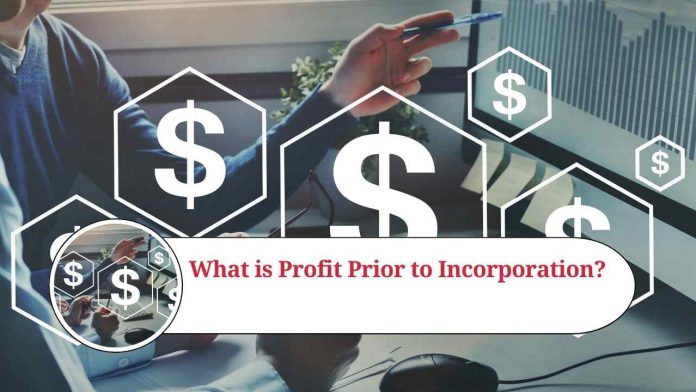When starting a new business, one of the most important considerations is how to finance it. Investors and lenders often want to know if a business is profitable, but what if the business has not yet been incorporated? This is where the concept of profit before incorporation comes into play.
Profit before incorporation, also known as pre-incorporation profit, refers to any income or profit earned by a business before it is officially incorporated. This can include revenue generated from sales, investments, or any other source of income.
How does pre-incorporation profit work?
To understand how pre-incorporation profit works, it’s important to first understand what incorporation is. Incorporation is the process of legally establishing a company as a separate entity from its owners. This means that the company has its own legal identity and can enter into contracts, own property, and sue or be sued.
When a business is incorporated, any pre-incorporation profit is typically transferred to the new company’s balance sheet as either equity or a loan. The specific accounting treatment will depend on the nature of the pre-incorporation profit and the terms of the incorporation agreement.
Advantages of pre-incorporation profit
One of the key advantages of pre-incorporation profit is that it can help a new business get off the ground. For example, if a business generates pre-incorporation profit through sales or investments, this can be used to fund initial expenses such as rent, equipment, or salaries. This can help the business avoid taking on debt or giving up equity to investors.
However, there are also potential drawbacks to pre-incorporation profit. For example, if the business is not incorporated properly, there may be legal issues surrounding the transfer of pre-incorporation profit to the new company. Additionally, pre-incorporation profit may be subject to taxation, depending on the specific circumstances.
To avoid these issues, it is important to work with a knowledgeable attorney or accountant when incorporating a new business. They can help ensure that the incorporation process is done correctly and that any pre-incorporation profit is transferred in a way that is legally and financially sound.
In conclusion
pre-incorporation profit can be a valuable asset for a new business. It can help provide funding for initial expenses and avoid the need to take on debt or give up equity. However, it is important to understand the legal and financial implications of pre-incorporation profit and to work with professionals to ensure that the incorporation process is done correctly.
Frequently Ask Question
Q. What is profit before incorporation?
Profit before incorporation, also known as pre-incorporation profit, refers to any income or profit earned by a business before it is officially incorporated.
Q. How is pre-incorporation profit treated in accounting?
Pre-incorporation profit is typically transferred to the new company’s balance sheet as either equity or a loan, depending on the nature of the pre-incorporation profit and the terms of the incorporation agreement.
Q. Can pre-incorporation profit be used to fund a new business?
Yes, pre-incorporation profit can be used to fund initial expenses such as rent, equipment, or salaries, helping the business avoid taking on debt or giving up equity to investors.
Q. What are the potential drawbacks of pre-incorporation profit?
If the business is not incorporated properly, there may be legal issues surrounding the transfer of pre-incorporation profit to the new company. Additionally, pre-incorporation profit may be subject to taxation, depending on the specific circumstances.
Q. How can I ensure that the incorporation process is done correctly?
It is important to work with a knowledgeable attorney or accountant when incorporating a new business. They can help ensure that the incorporation process is done correctly and that any pre-incorporation profit is transferred in a way that is legally and financially sound.





















Thanks so much for another post. I be able to get that kind of information information. friend, and exactly.